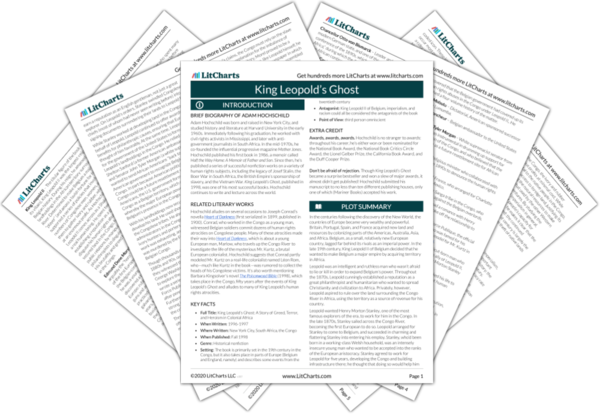Morel, much his like nemesis, King Leopold, was a master of publicity. Just as King Leopold used powerful allies to disseminate propaganda across Europe, Morel used his journalistic contacts to gather useful information about the Congo and then send it around the Western world in newspaper articles. Compared with many members of the Congo reform movement, Morel seems to have had genuine respect for African people; he didn’t just think of them as passive, interchangeable victims (which, Hochschild argues, made him different from many of the other humanitarians of the era).
